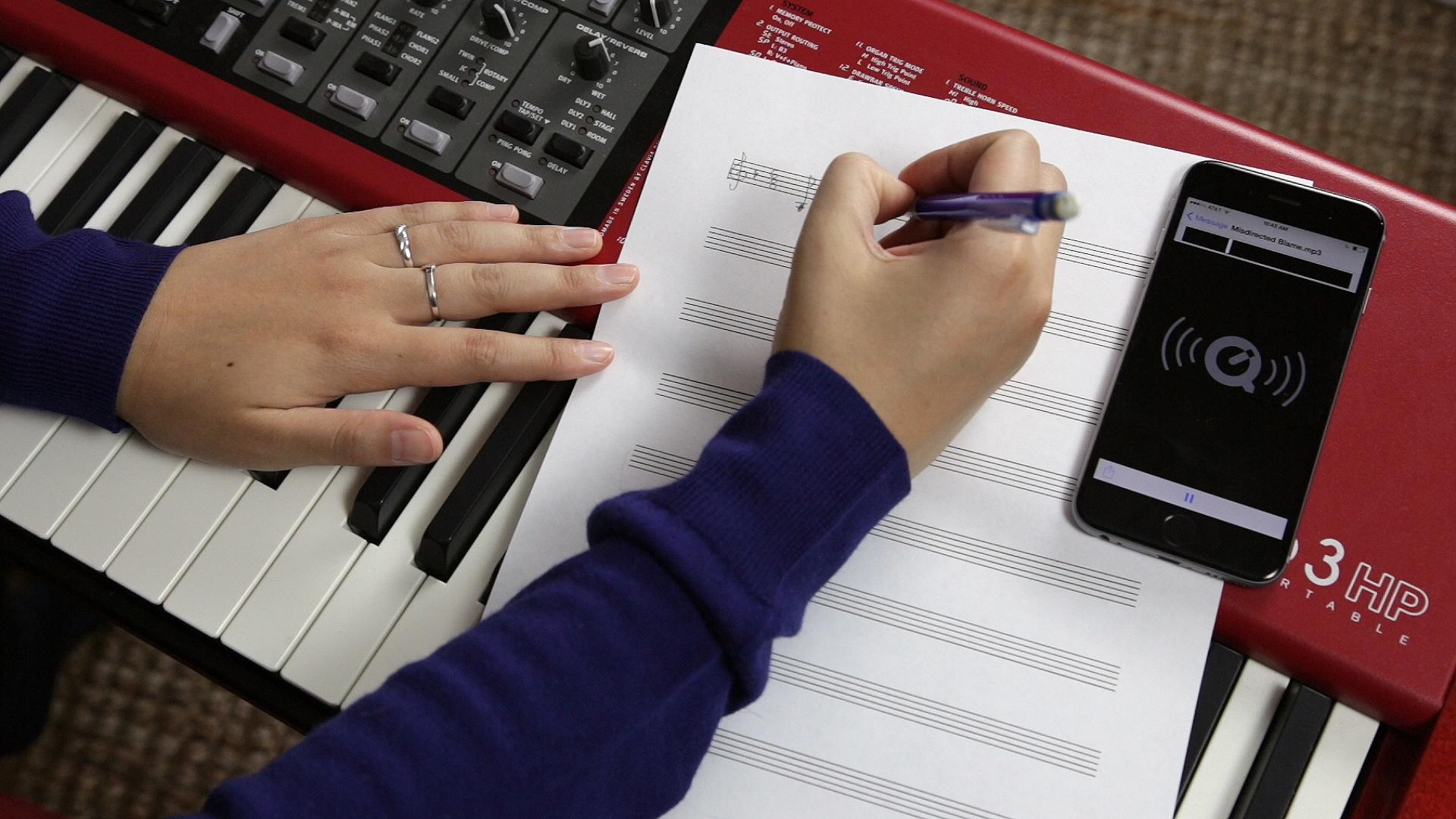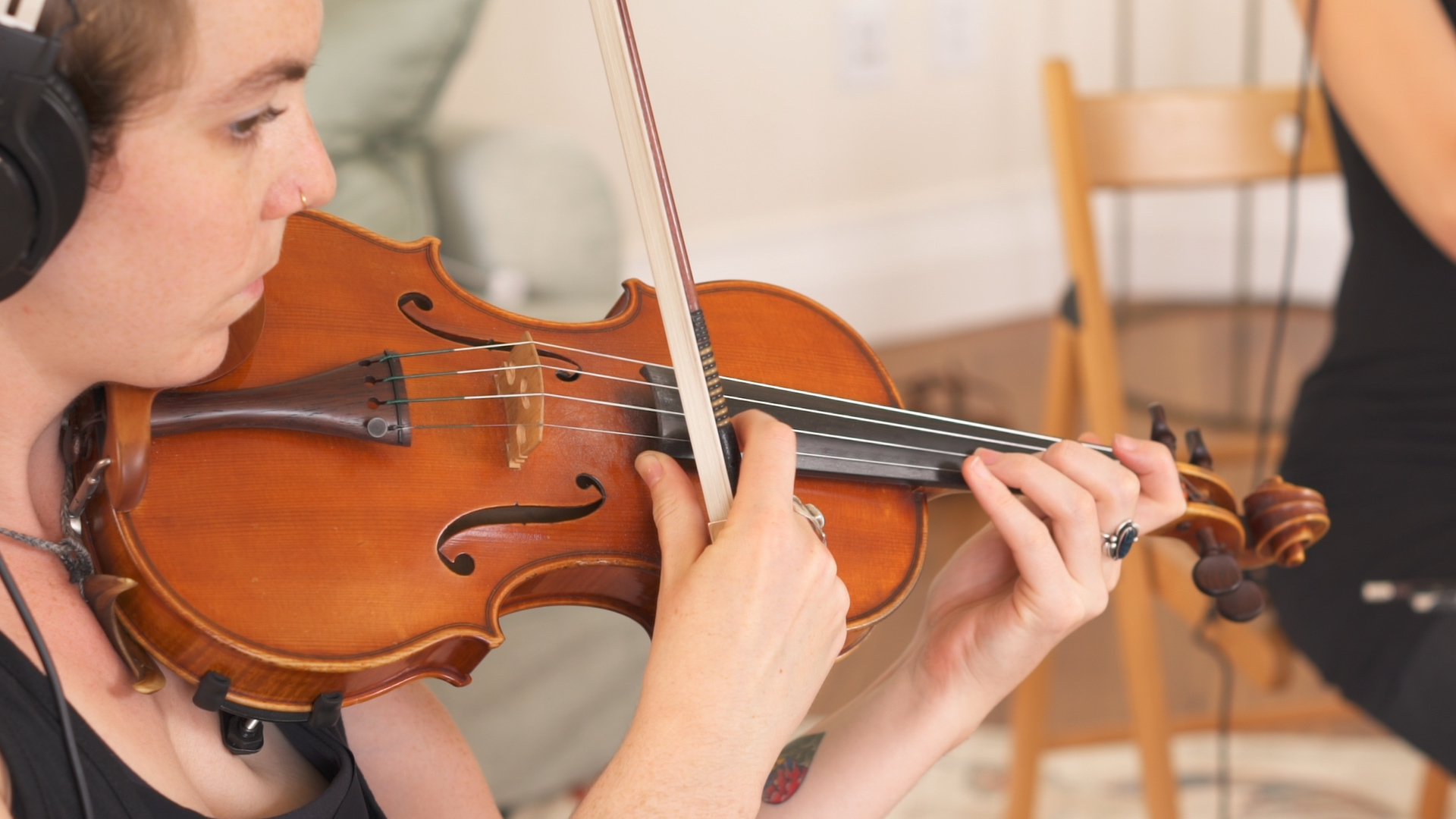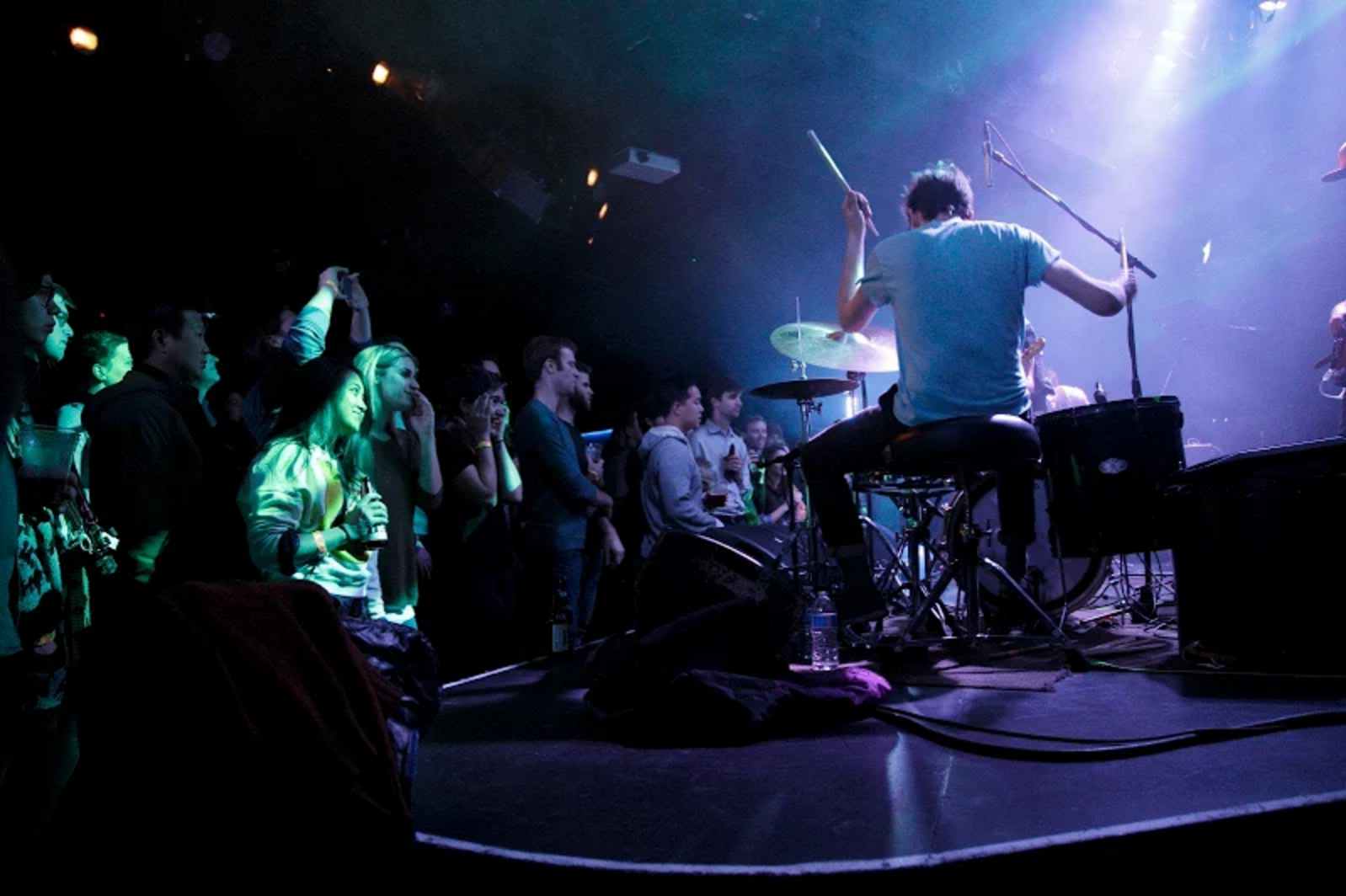In addition to a strong pedigree in communications, non-profits and education, Ian Temple, founder of Soundfly, is also a successful touring musician and film composer. In 2014 he launched Soundfly, an online music school, out of his and others’ simple need to keep learning new musical skills: a musician’s work is never done! There are other organizations like Save the Music that support and help music teachers and students continue their learning.
Soundfly describes itself as “out to help anyone anywhere discover and express their unique voice through music.” It offers free courses in a growing range of music topics, from orchestration to modular synthesis, and has amassed an impressive roster of instructors including Marin Alsop, conductor of the Baltimore Symphony, music director of the São Paulo State Symphony Orchestra and, to date, the only woman ever to conduct London’s annual BBC Proms (twice). Impakter had a chat with Ian to find out more about combining your day job and your passion; how to get such an ambitious project off the ground; and the future of MOOCs.
How did you initially conceive of Soundfly, and how did you approach making it happen?
I.T: The idea behind Soundfly was simple: there’s so much that I personally want to learn as a musician and didn’t know how to do it. So it started in a deeply selfish way, but as I talked to friends about the idea, I realized I wasn’t the only one. Music is one of those things that always offers more to learn, more to explore, more room to grow, especially because there’s no one right way to do it. It’s all about finding and making the sounds that resonate best to you. So we wanted to create that sort of music school – the one that allows curious musicians like us to find and learn whatever we want.
In terms of how we approached it, we honestly didn’t know what we would build at the outset. We had a clear vision of helping people learn, but that’s it. Since then, it’s really been a process of experimenting with new course ideas that sound like fun to us, taught by people we admire, and then getting input on that from our community. The goal over the long term is to figure out the best possible ways to help a diversity of people learn, create, and share music, in whatever way they’d like. It’s an ambitious goal, but we’re all committed to it. In the past year we’ve gone from basically nothing to 15 courses on topics ranging from things like Touring on a Shoestring and Building Blocks of Piano to Theory for Producers and Demystifying Synths. It’s fun to see it happen!
What, to you, is the point of music? What can it offer to the world?
I.T: (Laughs) The first question was so easy and concrete. This one feels like trying to catch a shooting star with a pair of chopsticks.
The truth is I don’t think anyone entirely understands the “point” of music. We know it enriches our lives. In fact, it’s near-impossible to imagine life without it. It gives us a voice. It can build creativity and confidence in people. It can help you fall in love or bring meaning to your life or just deliver unending pleasure to your day. It’s been with us since before recorded history began. Scientists are now finding that our brains are hardwired to interpret music. But I don’t know if we’ll ever really discover “the point.” I’m not sure life works that way. It’s this miraculous, mysterious form of communication that makes everything sound a little sweeter, brings us closer together, and injects meaning into our lives. Maybe we just have to be content with loving, exploring, and appreciating it without fully understanding it.
[Music is] this miraculous, mysterious form of communication that makes everything sound a little sweeter, brings us closer together, and injects meaning into our lives. Maybe we just have to be content with loving, exploring, and appreciating it without fully understanding it.
Could you maybe shed a little light on the different sides to your musical life? As both a musician and an entrepreneur, with all the organisation and management that entails, does one feed into the other?
I.T: This is an appropriate question because I’m headed out on tour next week with my group Sontag Shogun and feeling a little nervous about how I’m going to balance the two competing needs right now. But I don’t think I’d be able to devote myself to Soundfly if I wasn’t also pursuing my own musical dreams as well. Same goes for the rest of the team.
The other thing I’d say is that I don’t think I ever would have been able to start a company without the experience of starting musical projects. Leading bands, writing songs, and recording albums gave me confidence and helped me discover how much I love bringing people together for a common purpose.
Has combining your day job with your passion ever dimmed your love for music?
I.T: Nope. Definitely the opposite. I’m surrounded by incredibly talented musicians who just push me to be better every day and I love that.

Photo Credit: Soundfly
Does Soundfly aim to compete with traditional music education programs, or to offer an entirely new approach?
I.T: Definitely not. There’s so much value in traditional music education — we provide both an approach that can be supplementary to traditional music education or an alternative for people who for whatever reason can’t access that sort of thing. In fact, it’s been really cool to see how music teachers are using our courses already. Marymount Manhattan College for one added our West Side Story Companion course to their musical theater curriculum, which is great.
Related Articles: “ARTS ACCESS FOR ALL”
“WHEN INNOVATION AND EDUCATION INTERSECT: THE STORY OF EDMODO“
“INTERVIEW WITH MARTIN BRYANT, EDITOR-AT-LARGE OF THE NEXT WEB“
I think the opportunity we have is to give people access to perspectives, structures, frameworks, and lessons that they wouldn’t be able to access anywhere else, and probably wouldn’t be able to find from a local music teacher or music school. For example, imagine how much more powerful music education can be if your local teacher could call upon experts from around the world to help him or her teach a concept? Or what if you can’t find a “synth” teacher in your neighborhood? Or you can cover topics during the week and then do hands-on stuff with your teacher during a lesson? Those are just a few of the ways we’ve seen educators working with our courses. In fact, we’ve made a commitment that, even for our premium courses, music teachers can apply to access them for free with their students. That sort of accessibility becomes even more important now with so many schools ditching their arts programs.
https://www.youtube.com/watch?v=FGXY0ZXF44o
Do you feel MOOCs can be a viable alternative to college or other rigid education programs, in terms of quality and rigor?
I.T: Probably, but it depends on the person and the college. If we’re talking about a four-year, $50,000/year liberal arts college, then probably not. But most people don’t have access to that anyway. If we’re talking about people who are simply trying to access better outcomes in a specific field of study, I think MOOCs have a ton to offer by allowing motivated people to go at their own pace and take their own approach. And it’s certainly more affordable in terms of both cost and time.
That said, MOOCs still have a ton to learn about how to best inspire and instill learning in an online setting. As an industry, we’re just at the outset of that right now. One thing we realized is that people probably want to access online courses in smaller chunks of time and information, so we’re not trying to replicate college courses with our resources. We’re trying to adapt our learning approach specifically to the online environment.

Photo Credit: Soundfly
In what ways do you envision the arts, education and tech coming together in the future, and what could they bring to each other?
I.T: Well, we’re at this really interesting moment both in education AND in music. In the music industry, people are running around as if the sky is falling because things are changing so fast. While I think a lot of this is overblown, what it means for aspiring musicians is that it’s no longer enough to just sit in a room isolated and play cello for 24 hours a day ’til you’re the best ever. Instead, the modern musician is someone who crosses genres and boundaries and isn’t afraid to tackle new skills, like entrepreneurship, marketing, production, or recording, on the way. It’s the person who takes advantage of the decreased costs of listening to, learning, recording, and distributing music to make the new world work for them and their musical goals.
At the same time, our education system is rumbling along as if nothing’s changing, but can no longer deliver on a lot of its central promises. Students are expected to fall into debt to learn their craft, but the promise of a stable livelihood afterward is now totally different. Elsewhere, arts education is being cut from education budgets, which is truly problematic. Learning the arts teaches us so many things, including how to express ourselves, how to empathize with others, and in many ways how to be human.
So basically, we see ourselves at the intersection of these two trends. It’s why we call ourselves a different sort of music school for the modern musician. We want to help people navigate this new, changing world in a way that helps them achieve their musical dreams. And we hope to open that up to anyone.
It’s no longer enough to just sit in a room isolated and play cello for 24 hours a day ’til you’re the best ever. Instead, the modern musician is someone who crosses genres and boundaries and isn’t afraid to tackle new skills.
What would you recommend to get the best out of online or self-paced learning?
I.T: We’re trying to make it as easy as possible to learn, but I’d really encourage people to be active participants in their own learning. It’s easy to sit back and digest information, but you’ll truly grow by taking on challenges and producing new work that pushes you creatively and artistically. My biggest recommendation would be to schedule your learning time at regular intervals, whether it’s daily or weekly so that you can be really focused while you learn.
Launching an enterprise like Soundfly must have been a massive undertaking; what helped you to know you could pull it off during the dark nights of the soul?
I.T: The support and encouragement of friends, teammates, and family.
Are there other enterprises you think are worth looking out for in the world of online music education?
I.T: Definitely. I’ve only played with it quickly, but I think Yousician seems like an incredible resource for beginner guitarists (and now I think they’ve added piano). They’ve attacked a different part of the market than us and seem to be doing a great job with a really fun, interactive product. Our friends over at NYU’s MusEDLab are creating all sorts of fun resources to making learning music more accessible, like the aQWERTYon and Groove Pizza. Meludia is an ear-training app that’s really fun and accessible. There are obviously also more traditional resources like Coursera where you can find some university-level courses. I use Lynda.com for software learning. Finally, I’m still a big lover of YouTube for figuring out little things like how to play your favorite song or learn a specific trick.
It’s always great to get a sense of what professionals are listening to. What’s on your playlist at the moment?
I.T: I’d say I have three different types of listening: 1) music I just listen to in the background, which today has been all over the map (the Notorious B.I.G., Chance the Rapper, Son House, Empress Of, Son Lux, Disclosure, Chairlift, and even a smattering of Bieber); 2) music I study, which has mostly consisted recently of filling in the gap around my knowledge of the classical repertoire via our Orchestration for Strings playlist, and 3) music that deeply influences my own music, which would include people like Jon Hopkins, Nils Frahm, Olafur Arnalds, Nico Muhly, Julia Kent, yMusic, the Dead Rat Orchestra, and a lot of modern composers blending classical approaches with electronics and other modern genres.
I’m given to understand that you’re often studying some aspect of music, including some of Soundfly’s own offerings. What are you studying at the moment?
I.T: Up until this point, my personal preferences have probably driven too many of our classes. I scored my first short film last year so I needed to learn how to arrange for strings — which led to us creating an Orchestration for Strings course with an incredible arranger named Ian Davis. So I’m definitely participating in that course. Our Demystifying Synths series has been a game-changer for me because I’m really not very gear-oriented. I finally feel like I can use my Juno-106. Finally, our Theory for Producers course made with NYU is really fun because we’re experimenting with small, achievable weekly challenges, which I find a ton of fun and hope to build on in future. You can hear some of our students’ work in our SoundCloud group. Now that we have an active community, I’m even more excited to see what courses they are looking for that I might not even know about (for example, we’ve just started work on a Chiptunes course that I can’t wait to see…).
Recommended Reading: “TERENCE BLANCHARD ON TEACHING THE NEXT GENERATION OF MUSICIANS”
“WHY MUSIC EDUCATION IS VITAL”
_ _










